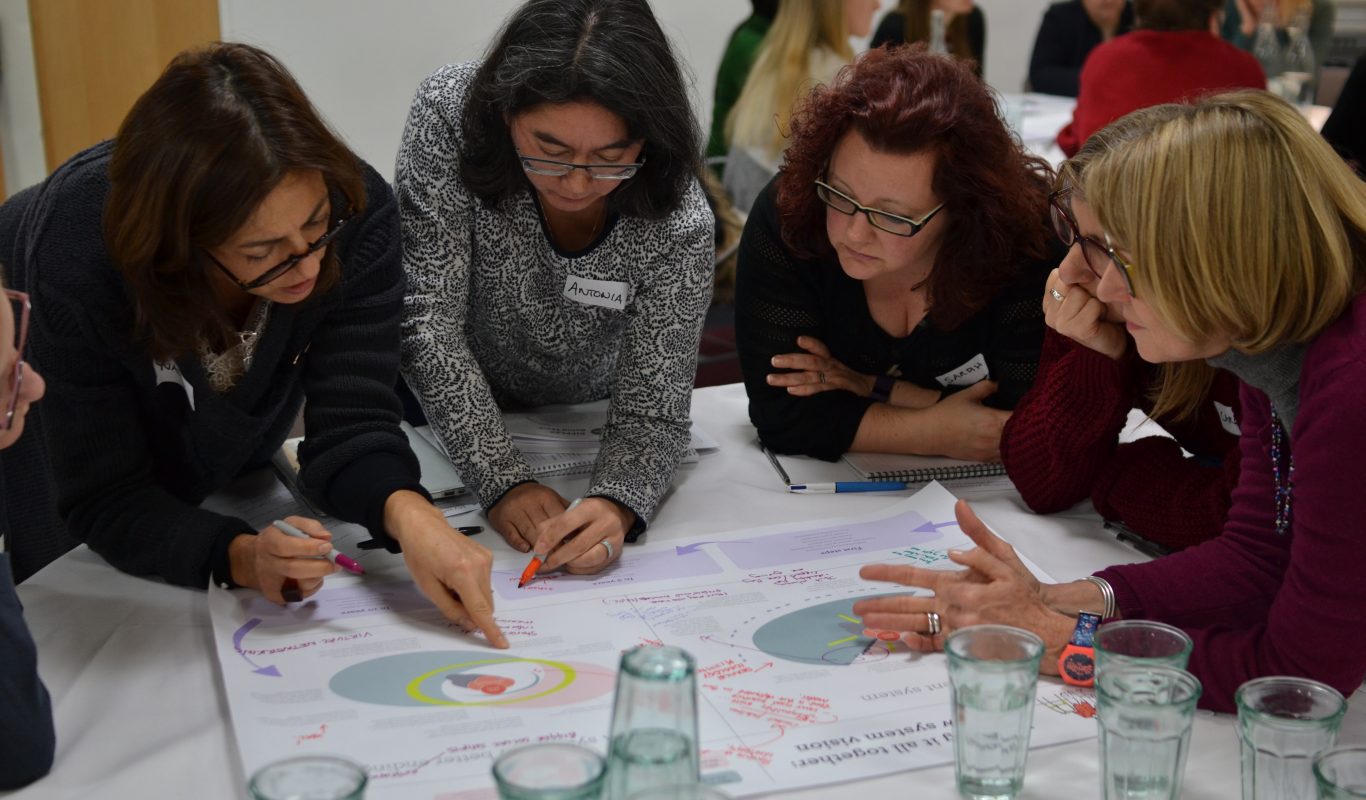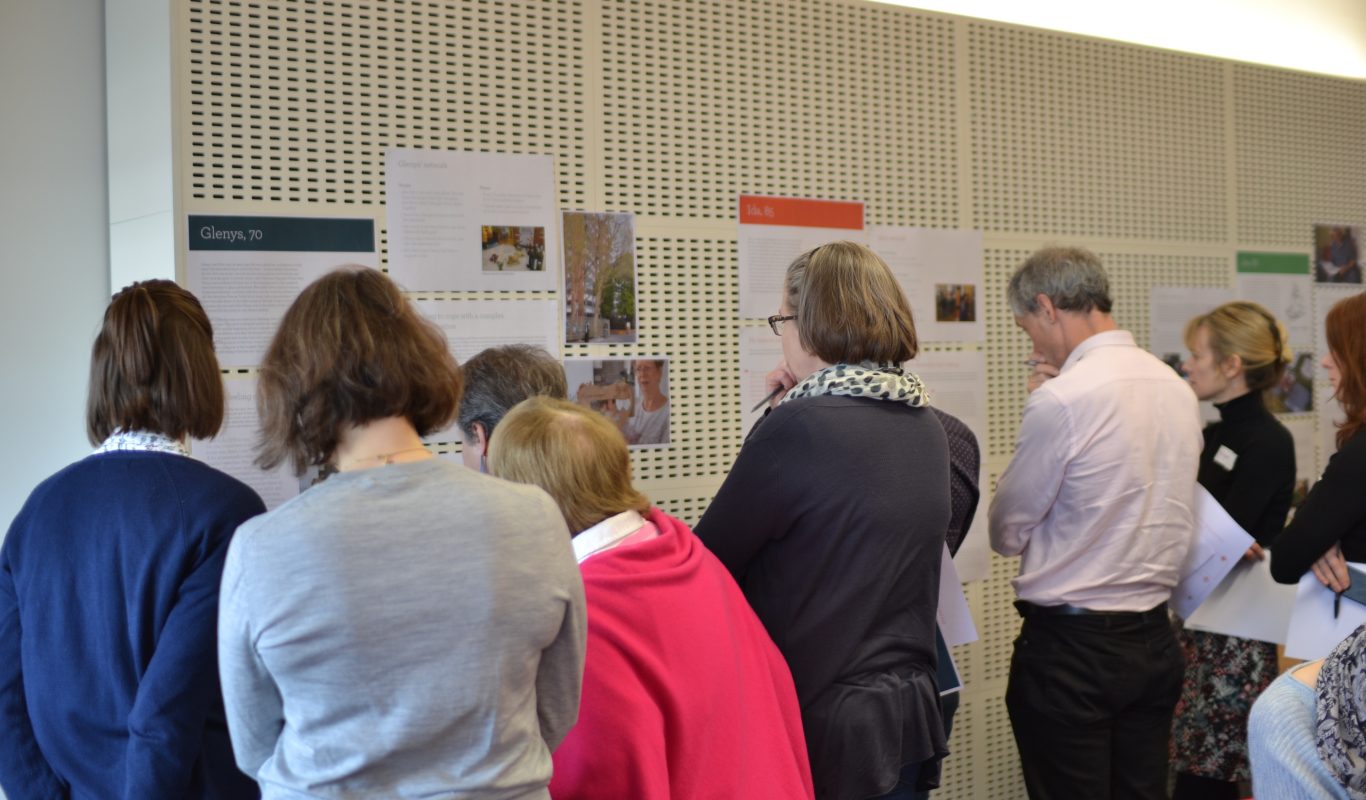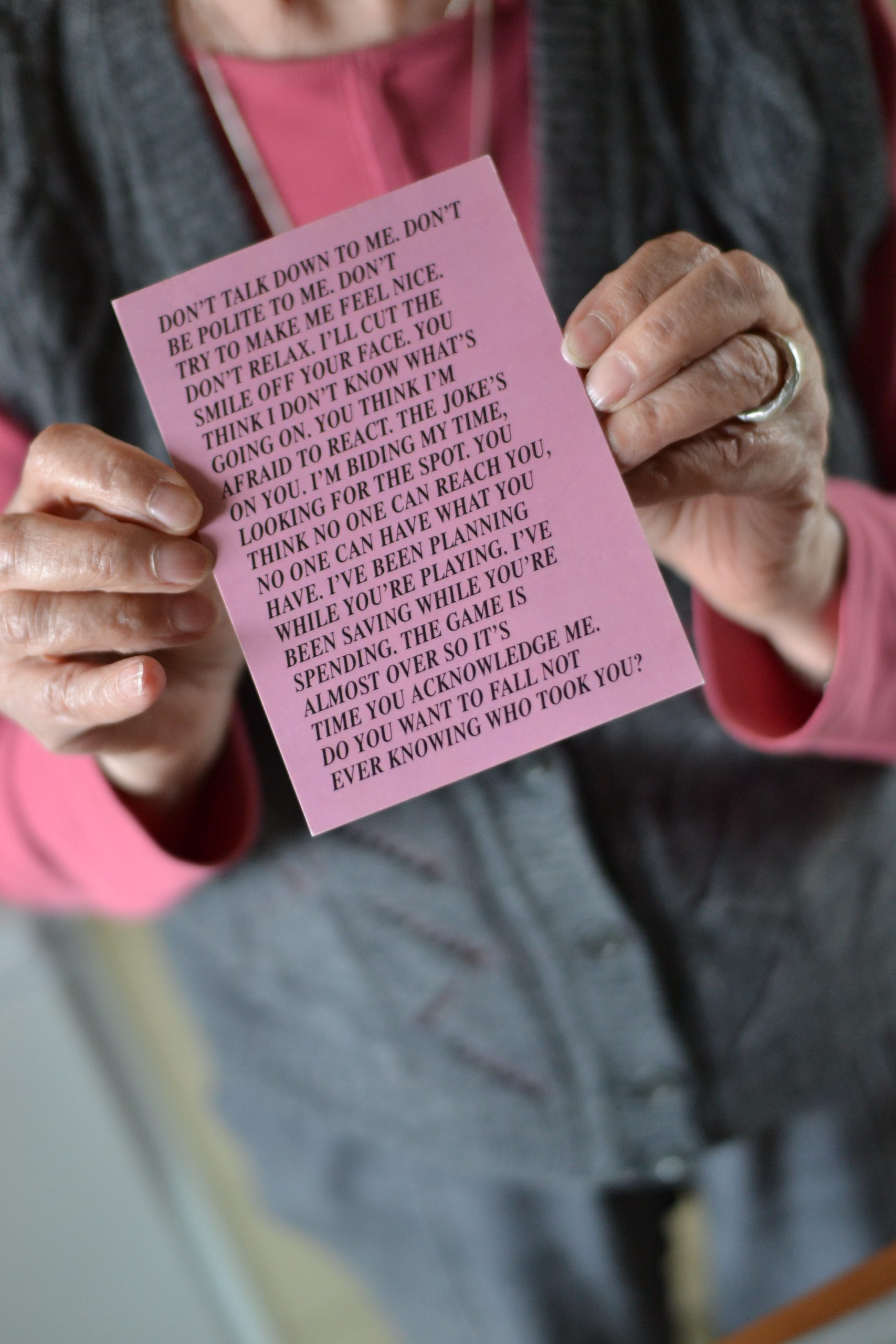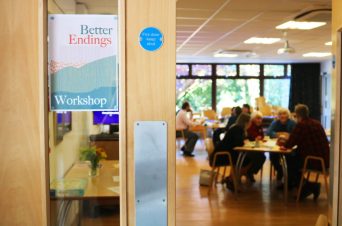Creating new solutions for end of life care
End of life care
With Guy's & St. Thomas' Charity, London, UK
Everybody deserves great support for themselves and for their families at the end of their lives. This doesn’t always happen. Working with Guy’s and St Thomas’ Charity, we set out to bring together end of life care experts with members of the community to mobilise a new vision for ‘better endings’.
The Problem
92,000 people
in England in 2013 did not receive any palliative care.
17%
predicted increase in the demand for end of life care support in Lambeth and Southwark by 2030.
“It seemed to me like there was a lack of humanity in the process right from the start. There didn't seem to be anybody that he felt he could ask questions to, it was a medical process that he just had to wait for and in the meantime there didn't seem to be any physical monitoring of the situation or anybody to talk to or give him advice.” Bereaved daughter
Research on end of life care in the UK makes for grim reading. It tells us that too many people die in unsettling environments, surrounded by the wrong people. Too many people die lonely and afraid, unable to access any appropriate support and care. And for too many, some of the most precious days of their lives are spent marking time, simply waiting for the end to come. Current ‘outcome measures’, such as whether someone dies in their ‘preferred place of death’ obscure much of the lived experience of people that are dying, and their loved ones. It doesn’t tell us how they feel, what’s important to them or how they want to be supported.
“Most of what we most value in life — love, friendship, respect, recognition, care — comes from relationships … People die well when they are supported by relationships with people who care for them and provide their lives with a sense of meaning.” Jake Garber and Charles Leadbeater
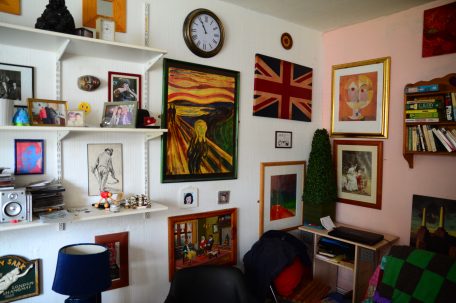

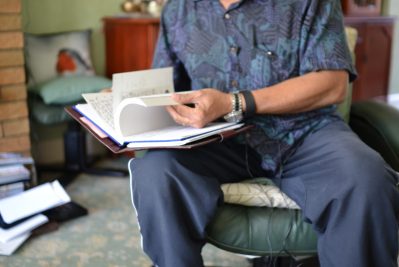
Inspired by the policy pamphlet Dying for Change (2010) by Charles Leadbeater and Jake Garber, Better Endings was a programme thoughtfully brought to life by Innovation Unit working with experts from within and beyond the clinical and professional care systems. Focused in South London, we started by listening to people living and dying in Lambeth and Southwark and hearing about their experience of death, dying and loss.
“Death and dying have become the business and the responsibility of professionals and society and the public don’t recognise their role or their opportunities to influence it in the way that they might have done historically.” Heather Richardson
Our Impact
1 year
to bring together a fresh new group of people to think, design and test radically new approaches.
Over 200
people involved in exploring opportunities and developing solutions.
3
prototype solutions developed and tested on the ground.
During 2017, we created a space for a diverse, expert group to come together and think differently, supporting them to design and prototype new solutions for better endings. We involved over 200 people: clinical and care professionals, commissioners and policy-makers, voluntary and community organisations and people with experience of living and dying in Southwark and Lambeth.
Together we identified three ideas to prototype: Neighbourhood Care, Coach4Care and Ripples. Each had a different focus, but our ideas shared several characteristics. They all aimed to:
- Respond to people’s needs and wishes in a more holistic sense, addressing social, emotional and practical needs as well as clinical needs
- Create the conditions for people (and their loved ones) to feel both individually empowered and well-supported by great human relationships
- Reach out to people who are especially disadvantaged by our current arrangements (and may be at risk of having no care and support at end of life)
- Draw on a much wider pool of knowledge, experience and capability to support people
- Illustrate different ways of thinking about power; capabilities and expertise; risk and uncertainty; and managing pain and discomfort in pursuit of better experiences for people.
Though the programme ended in December 2017, both Coach4Care and Ripples are being taken forward in different settings and with different partners.
Update
—
Whilst Better Endings focused on South East London, the insights we surfaced and approaches we developed should be of much-wider interest. Take a look at the two major outputs from our programme. They aim to prompt thinking, conversation and action in your locality.
- Six Stories: Death, loss and life in Southwark and Lambeth (May 2018)
- Creating the conditions for Better Endings: Some possible ways forward (May 2018)
We want to be part of a growing movement for change in the way we think about and behave around death and dying.
Project team
Ella Walding
Head of Service Design
